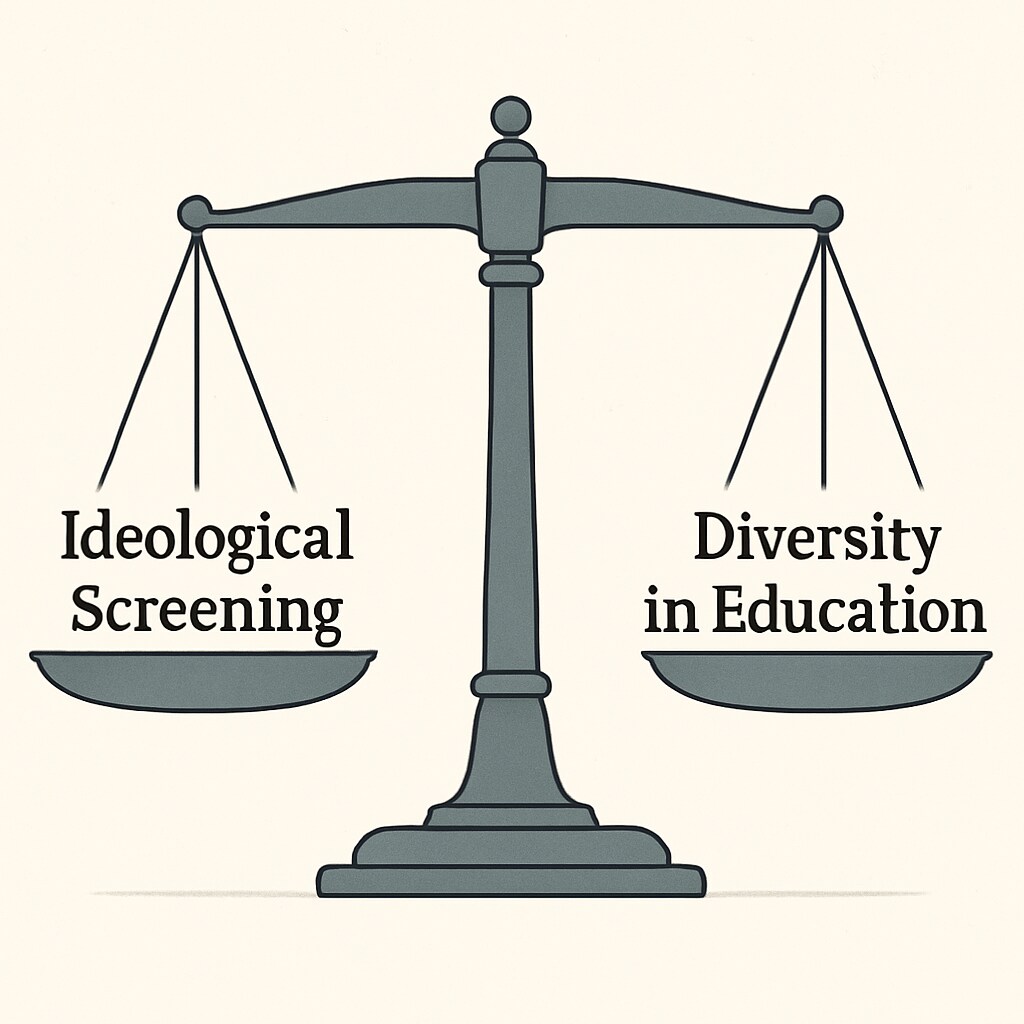The recent introduction of political ideology screening in teacher applications in Oklahoma has triggered nationwide discussions among educators, policymakers, and the public. This controversial policy, which applies to out-of-state teacher applicants, aims to assess candidates’ political and ideological leanings before hiring. While proponents argue that the measure ensures alignment with state values, critics warn of its potential to undermine diversity and intellectual freedom in education.
Understanding Political Ideology Screening in Teacher Hiring
Political ideology screening, as implemented in Oklahoma, involves evaluating applicants’ beliefs and attitudes to determine whether they align with the state’s educational framework. According to state officials, the policy is designed to uphold community values and prevent the introduction of ideologies deemed inappropriate for local schools. However, this practice raises questions about the fairness and objectivity of such assessments.

Motivations Behind the Policy
Supporters of the policy have cited concerns over the influence of external ideologies that may conflict with local cultural and political norms. They argue that by vetting out-of-state teachers on ideological grounds, the state can maintain consistency in its educational approach. For example, some states worry about curriculum changes or teaching methods influenced by social or political movements from other regions.
However, critics point out that such measures could lead to exclusionary practices. They emphasize that education should be a platform for diverse ideas, fostering critical thinking rather than conformity. This debate highlights the tension between preserving state identity and embracing the pluralism often associated with public education.
Potential Implications for Education
The introduction of political ideology screening could have far-reaching effects on the educational landscape. Here are some potential outcomes:
- Impact on Teacher Diversity: The policy may dissuade qualified candidates from applying, especially those with differing perspectives.
- Risk to Academic Freedom: Screening could create a culture of self-censorship among educators, limiting the scope of classroom discussions.
- Legal and Ethical Challenges: Critics argue the policy may violate anti-discrimination laws and raise ethical concerns about ideological bias.
These implications underscore the importance of balancing ideological considerations with respect for diversity and educational integrity.

Finding the Middle Ground
To reconcile the debate, policymakers must strive for a balanced approach that respects both community values and the diversity of thought integral to education. This could involve:
- Developing objective criteria for teacher hiring that prioritize professional qualifications over personal beliefs.
- Creating forums for dialogue between educators, parents, and policymakers to address concerns about curriculum and teaching practices.
- Implementing training programs that prepare teachers to navigate ideological differences in the classroom while respecting community norms.
By fostering collaboration and mutual understanding, states can ensure that their schools remain inclusive yet aligned with their educational goals.
Conclusion
Oklahoma’s political ideology screening policy places education at a crossroads. While the intention to uphold community values is understandable, the risks to diversity, academic freedom, and legal compliance cannot be ignored. As other states watch closely, this debate serves as a reminder of the delicate balance required to maintain the integrity of education while respecting diverse perspectives. Policymakers, educators, and the public must work together to ensure that schools remain spaces for learning, growth, and inclusivity.
Readability guidance: This article uses short paragraphs, clear transitions, and lists to summarize key points. The content avoids excessive jargon and long sentences to maintain accessibility for a broad audience.


